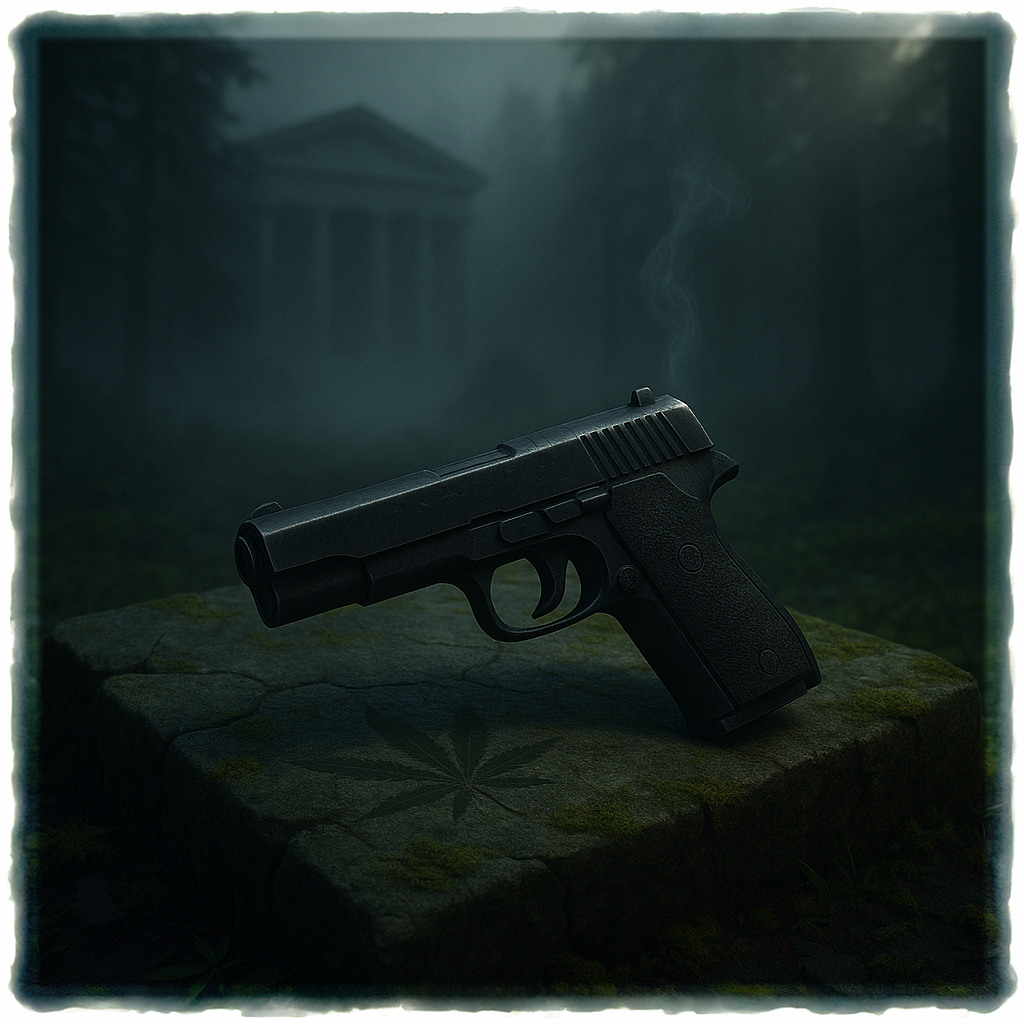Gun‑rights groups ask justices to review whether the federal gun ban for marijuana users violates the Second Amendment.
The federal statute at issue—18 U.S.C. § 922(g)(3)—makes it unlawful for “any person … who is an unlawful user of or addicted to any controlled substance” to receive or possess firearms. Gun‑rights organizations are asking the Supreme Court of the United States to review whether that law remains consistent with the Second Amendment when applied to individuals who use marijuana.
As the nation’s marijuana laws shift—many states have legalized or decriminalized cannabis use—the petition frames a major constitutional crossroads: balancing gun rights, drug policy, federal prohibition versus state authorization, and the historical precedent for firearm restrictions.
Background and legal framework
The prohibition in § 922(g)(3) traces back to the federal Gun Control Act regime. As the Congressional Research Service notes, § 922(g)(3) is one of several “prohibited person” categories under the federal firearms statute. The statute prohibits the possession or receipt of firearms or ammunition by anyone who is an unlawful user of or addicted to any controlled substance (as defined in 21 U.S.C. § 802).
In terms of Second Amendment jurisprudence, the landmark decision is New York State Rifle & Pistol Ass’n v. Bruen (2022), in which the Court held that when a firearms regulation burdens the “people” covered by the Second Amendment’s text, the government must show that the regulation is consistent with the Nation’s historical tradition of firearm regulation.
The marijuana‑legalization trend complicates matters further. Though many states now permit recreational or medical cannabis use under state law, federal law still classifies marijuana as a controlled substance. That creates a tension: an individual may use marijuana legally under state law, yet under § 922(g)(3) remain disqualified from possessing firearms federally.
The petition to the Supreme Court
A coalition of national and state gun‑rights groups (including the Second Amendment Foundation, the California Rifle & Pistol Association and others) recently filed a certiorari petition urging the Supreme Court to review the constitutionality of § 922(g)(3) as applied to marijuana users.
Their core legal argument: the categorical ban on gun ownership for anyone who uses marijuana lacks a historical analogue, particularly for individuals who are not demonstrably impaired or dangerous. They draw a comparison to alcohol: historically, laws disarmed individuals while intoxicated, but did not ban firearm ownership for people who “sometimes drank.” They contend marijuana should be treated no differently under modern law.
The petition thus challenges the law in two ways: an “as‑applied” challenge (i.e., applied to particular marijuana users) and a “categorical” challenge (the blanket prohibition). The petitioners ask the Court to grant review to resolve divergent decisions among the federal circuit courts on how § 922(g)(3) applies to marijuana users.
Circuit court developments & precedents
The petition arrives amid mounting circuit‑court developments that raise serious questions about § 922(g)(3)’s constitutionality when applied to marijuana users. For example, in one recent case the U.S. Court of Appeals for the Eleventh Circuit held that medical‑marijuana users in Florida had plausibly alleged a Second Amendment injury under § 922(g)(3).
The Congressional Research Service summarizes that courts addressing § 922(g)(3) now apply the Bruen framework. Under Bruen, once the plaintiff shows the regulated conduct falls within the Second Amendment’s text, the government must demonstrate that the regulation is “consistent with the Nation’s historical tradition” of firearms regulation.
In one influential analysis, the Rock Institute commentary observed that some courts have treated § 922(g)(3) facially—that is, as always invalid—but others have treated it only “as‑applied” (i.e., invalid for particular persons whose marijuana use is occasional, state‑compliant, and not tied to danger).
What makes the current challenge significant: the factual predicate is shifting. In states where marijuana is legalized or decriminalized, individuals using marijuana legally under state law still face a categorical federal disarmament. The argument is that history did not treat sober users of alcohol or other substances this way, so the modern law may be out of step with the historical tradition Bruen requires.
Broader implications and stakeholder perspectives
For marijuana users: The petition underscores that even in states where cannabis use is legal, individuals may remain disqualified from owning firearms under federal law. That means a state‑law legal user of marijuana could still lose Second Amendment rights under § 922(g)(3) simply because of the federal classification.
For gun‑rights advocates: A favorable decision could broaden the scope of Second Amendment protections and restrict the government’s ability to categorically disarm based on drug‑use status alone. The petitioners argue that imposing a blanket “gun ban for marijuana users” is inconsistent with constitutional standards and historical practice.
For federal law‑enforcement and policy: Should the Supreme Court restrict § 922(g)(3) or interpret it narrowly, the federal government will face decisions whether to revise regulatory schemes, defer to state‑law marijuana use, and clarify how to evaluate “unlawful user” status. The government may need to adopt more nuanced criteria—such as actual impairment, recent use, or evidence of risk—rather than a blanket rule.
For state legislatures and drug‑policy reformers: The case may force a closer look at how state‑legal cannabis use interacts with federal firearms policy. States that legalize marijuana may need to consider separate carve‑outs or collateral consequences regarding firearms rights. The question of harmonizing state reform and federal prohibition becomes more urgent.
The crossroads of cannabis reform and Second Amendment rights
The gun ban for marijuana users as applied under § 922(g)(3) is headed for the Supreme Court and may become a landmark Second Amendment decision. Its significance lies in how the Court frames the key question: Is it constitutionally permissible to impose a categorical ban on firearm possession for individuals who use marijuana—or must the government instead show individualized risk or reliance on historical analogues?
If the Court grants certiorari and ultimately strikes down or narrows § 922(g)(3) as applied to marijuana users, the ripple effects could extend far beyond cannabis law: federal firearms policy, state‑law interactions, and the way the Second Amendment is interpreted in a modern context. Conversely, if the Court upholds the law broadly, it may reaffirm the government’s authority to disarm individuals simply based on drug‑use status regardless of state legality.
For now, stakeholders on all sides—gun rights organizations, cannabis reform advocates, federal and state policymakers—are watching carefully. The outcome could reshape the intersection of gun rights and drug‑use law at a time when both are in flux.

***
Trap Culture is the ultimate destination for cannabis enthusiasts who want to experience the best of Arizona’s cannabis culture. Whether you are looking for the hottest cannabis-friendly events, the latest news on cannabis legalization, trends in the industry and exclusive, limited-edition products from the top brands in the market, Trap Culture has you covered. Visit our website to learn more about our events, our blog, and our store. Follow us on social media to stay updated on the latest news and promotions. Join the Trap Culture family and experience the most immersive and engaging social cannabis events in Arizona.
Follow us on social media




